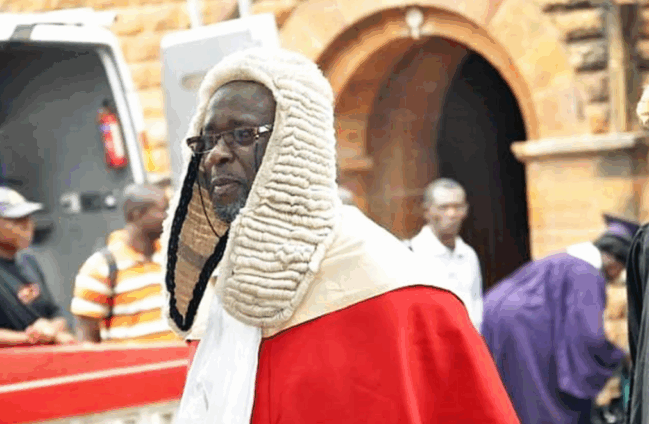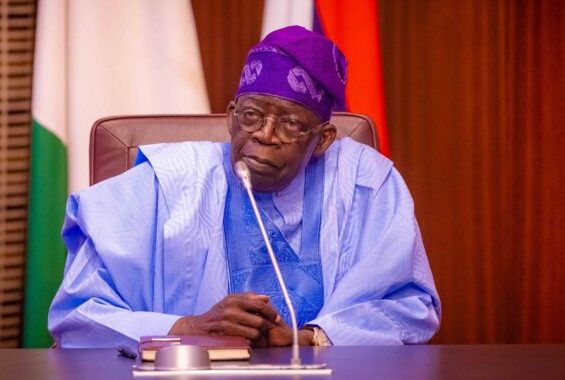Presidential Pardon Controversy: Tinubu Strips High-Risk Offenders, Including Maryam Sanda, From Clemency List

President Bola Tinubu has formally exercised his constitutional prerogative of mercy, granting pardon and clemency to selected individuals convicted of various offenses. This decision, however, was not without controversy, as an initial list of beneficiaries released in October drew widespread public condemnation.
The initial list of 175 beneficiaries triggered significant outrage from political figures, human rights organizations, and concerned Nigerians, who decried the inclusion of persons convicted for serious offenses. Among those initially slated for pardon were individuals convicted of serious crimes such as kidnapping, drug-related offenses, human trafficking, fraud, and unlawful possession or dealing in firearms. Specific examples that garnered criticism included Maryam Sanda, sentenced to death for the culpable homicide of her husband, Bilyaminu Bello; Farouk Lawan, a former House of Representatives member; and categories like 41 illegal miners, 28 drug traffickers, and 22 murderers. Other notable names mentioned in the initial clemency included historic figures like Herbert Macaulay, Mamman Vatsa, Major Akubo, Professor Magaji Garba, Ken Saro Wiwa, and the Ogoni Eight, alongside various foreigners and corrupt politicians.
In response to the strong public feedback and following consultations with the Council of State, President Tinubu directed a comprehensive review of the original list. This review was conducted pursuant to his discretionary powers under Section 175(1) & (2) of the 1999 Constitution (as amended), aiming to address the concerns raised by stakeholders and the public.
The outcome of the review led to significant revisions. Individuals convicted of serious crimes, including kidnapping, drug-related offenses, human trafficking, fraud, and unlawful possession or dealing in firearms, were notably removed from the revised list. Additionally, some others who were earlier slated for outright pardon had their sentences commuted instead. This decision to remove individuals like Maryam Sanda from the pardon list was specifically confirmed by Bayo Onanuga, the Special Adviser to the President on Information and Strategy.
According to the Presidency, this corrective action was guided by multiple critical considerations: the gravity of the offenses, their security implications for the nation, sensitivity to the feelings of victims and society in general, the imperative to reinforce the morale of law enforcement agencies, and adherence to Nigeria’s bilateral obligations. The review also underscored the fundamental principle that justice must serve a three-way traffic for the accused, the victim, and the state/society.
To ensure improved due process and prevent future controversies, President Tinubu has ordered significant administrative reforms. He directed the immediate relocation of the Secretariat of the Presidential Advisory Committee on Prerogative of Mercy from the Federal Ministry of Special Duties to the Federal Ministry of Justice. Furthermore, the Attorney-General of the Federation has been tasked with issuing new guidelines governing the exercise of the prerogative of mercy. These guidelines will include mandatory consultation with relevant prosecuting agencies, ensuring that only persons who fully meet stipulated legal and procedural requirements benefit from future clemency processes.
The approved and revised list of beneficiaries has since been transmitted to the Nigerian Correctional Service for immediate implementation in line with the executed instruments of release. President Tinubu expressed appreciation for the constructive engagement of stakeholders and the public, reaffirming his administration’s unwavering commitment to ongoing judicial reforms and strengthening the administration of justice across Nigeria.
You may also like...
Barcelona Blow: Pedri Sidelined for Crucial Chelsea Showdown Due to Injury
)
Barcelona confirms that midfielder Pedri will be sidelined for six to seven weeks with a thigh injury, missing key fixtu...
Trae Young's Injury Scare: Hawks Star Avoids ACL Tear, Awaits MRI Results

Atlanta Hawks star Trae Young sustained a right knee sprain, confirmed not to be an ACL injury, during a recent game aga...
Hollywood Beef Erupts: 'Road House' Director Clashes With Amazon Over Disconnected Sequel

A creative and legal showdown rocks Hollywood as director Doug Liman and original writer R. Lance Hill challenge Amazon ...
Anime Shockwave: 'One Piece' Ends 27-Year Tradition With Major 2026 Overhaul

Toei Animation announces a bold new era for One Piece ending its weekly broadcast model after 27 years. Beginning in 202...
Music & Mayhem: F1 Las Vegas Grand Prix Secures Superstar Lineup with Louis Tomlinson, Kane Brown

The 2025 Formula 1 Heineken Las Vegas Grand Prix is revving up with a star-studded musical lineup featuring Louis Tomlin...
Kyle MacLachlan Unpacks 'Twin Peaks' & 'The Lowdown' Similarities

From 'Reservation Dogs' creator Sterlin Harjo, the FX series 'The Lowdown' is a moody mystery set in Tulsa, Oklahoma, ex...
Political Shockwave in Liberia: President Boakai's Sudden Purge Rocks Nation

President Joseph Boakai has initiated a wave of unexplained dismissals across his Liberian administration, creating an a...
Unveiling Uganda's Infamous 'Highway of Death': A Dangerous Journey Revealed

Uganda's Kampala-Gulu highway is a "corridor of death," highlighted by a recent fatal crash involving 46 lives. Bus driv...




